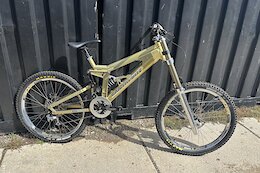Smaller organisations typically want to have a small entry level cost to get started with any new investments. Document grounding AI feature from SAP has a commercial structure to support this. Together with the free Joule Base I believe document grounding is a great opportunity for SAP’s partners to introduce SAP Business AI to ALL their customers (also the small customers), and to ALL the users to quickly get benefit, at an extremely reasonable price.
What is document grounding?
Are you are familiar with the “informational” pattern in Joule? A user can ask Joule about how something works in their SAP system. Joule gives answer based on the knowledge on the SAP Help Portal. This is made possible by the fact that SAP has already “grounding” Joule with the information on the help portal and then using this information to formulate an answer to queries of users, leveraging LLMs. Some people describe this as “training Joule”. Technically this is probably not the correct term, but it gives a good idea of what it is.
What if a company could “train” Joule to answer any questions related to their customer specific situation? This is possible with “document grounding”. SAP customers can “upload” their own documents with important information about how they work, and Joule can be “trained” to answer user questions on these informations.
What are examples on how companies can use document grounding?
HR policies: most companies have documents describing their policies regarding vacation, travel, car policy, expense policies etc. Joule can be grounded on these documents and serve as basis for users to get answer to their queries.Working instructions: most companies have special instructions on how to work in the SAP system. For example, specific ways to do month end processes, how to book a purchase invoice to split cost over departments, which specific G/L account to use for special bookings, special business rules for specific suppliers etc. These working instruction documents can be including in document grounding for Joule.Product information: one example I heard about was a company with a huge list of product SKU with interdependencies which they grounded into Joule so that salespeople could use Joule to answer their questions about best product fit for a customer.The opportunities are endless. If an SAP customer has any written documents their users need to consult now and then, these documents are candidates for document grounding in Joule. I recommend SAP partners to brainstorm about this with their customers.
Here is an example of a user leveraging Joule to query their company’s specific documents. The answer is obviously not based on SAP help portal information, but on a specific customer HR policy document:
How much does document grounding cost?
There are two cost elements: First, the “training” of Joule; uploading, indexing, and storing the indexed information in the right format for Joule to use it.
Secondly, every time the user query the documents via Joule, Joule leverages LLMs to put together the answer. The good news: since June this year this is now part of “informational” pattern in Joule Base and thus free for customers running a SAP LOB solution where Joule is support, as I wrote about in another article.
Let’s look at an example for the indexing cost: A company has 40 documents they want to include in document grounding. Each document is 50mb large. This will cost 16.80 euro per year. You read it correctly: 16.80 euro, less than 17 euro!! (we are NOT talking about 16.8K). This cost includes the initial indexing and constant reindexing when the customer makes changes to the documents.
Here are the detailed calculations: Document grounding is a premium transactional AI feature. The pricing is 0,005 AI units per record per month (for practical purposes, a record is up to 50Mb of documents). As the list price of 100 AI units is 700 (thus 7 euro per 1 AI unit), this would be the full calculation:
40 records * 0.005 AI units * 7 euro per AI unit * 12 months = 16.80 Euro
The core pricing information for this calculation can be found in the SAP AI Features Guide Price List :
How can a customer get going with document grounding?
Order Joule base and get it up and running. Read morePurchase at least 100 AI units. Even though the example above only needs 2.4 AI units for a whole year, the minimum purchase requirement for SAP AI units is 100 units (with a list price of 700 euro in Europe). Understand the document ground technical product requirements. Main point here is the requirement of where the customer store and manage their documents in the first place (MS SharePoint or SAP Build Work Zone, advanced edition).
Can partner test and demo document grounding in their TDD systems?
No, not right now. However, it will become possible at the end of October 2025 when SAP will launch a special AI unit for TDD.
For more information about document grounding, check the AI feature catalog (tip: toggle to the second image in the image box and play the demo video). Please also have a look at pages 15-16 the official SAP L3 deck on Joule.
Smaller organisations typically want to have a small entry level cost to get started with any new investments. Document grounding AI feature from SAP has a commercial structure to support this. Together with the free Joule Base I believe document grounding is a great opportunity for SAP’s partners to introduce SAP Business AI to ALL their customers (also the small customers), and to ALL the users to quickly get benefit, at an extremely reasonable price.What is document grounding?Are you are familiar with the “informational” pattern in Joule? A user can ask Joule about how something works in their SAP system. Joule gives answer based on the knowledge on the SAP Help Portal. This is made possible by the fact that SAP has already “grounding” Joule with the information on the help portal and then using this information to formulate an answer to queries of users, leveraging LLMs. Some people describe this as “training Joule”. Technically this is probably not the correct term, but it gives a good idea of what it is.What if a company could “train” Joule to answer any questions related to their customer specific situation? This is possible with “document grounding”. SAP customers can “upload” their own documents with important information about how they work, and Joule can be “trained” to answer user questions on these informations. What are examples on how companies can use document grounding?HR policies: most companies have documents describing their policies regarding vacation, travel, car policy, expense policies etc. Joule can be grounded on these documents and serve as basis for users to get answer to their queries.Working instructions: most companies have special instructions on how to work in the SAP system. For example, specific ways to do month end processes, how to book a purchase invoice to split cost over departments, which specific G/L account to use for special bookings, special business rules for specific suppliers etc. These working instruction documents can be including in document grounding for Joule.Product information: one example I heard about was a company with a huge list of product SKU with interdependencies which they grounded into Joule so that salespeople could use Joule to answer their questions about best product fit for a customer.The opportunities are endless. If an SAP customer has any written documents their users need to consult now and then, these documents are candidates for document grounding in Joule. I recommend SAP partners to brainstorm about this with their customers.Here is an example of a user leveraging Joule to query their company’s specific documents. The answer is obviously not based on SAP help portal information, but on a specific customer HR policy document:How much does document grounding cost?There are two cost elements: First, the “training” of Joule; uploading, indexing, and storing the indexed information in the right format for Joule to use it. Secondly, every time the user query the documents via Joule, Joule leverages LLMs to put together the answer. The good news: since June this year this is now part of “informational” pattern in Joule Base and thus free for customers running a SAP LOB solution where Joule is support, as I wrote about in another article.Let’s look at an example for the indexing cost: A company has 40 documents they want to include in document grounding. Each document is 50mb large. This will cost 16.80 euro per year. You read it correctly: 16.80 euro, less than 17 euro!! (we are NOT talking about 16.8K). This cost includes the initial indexing and constant reindexing when the customer makes changes to the documents.Here are the detailed calculations: Document grounding is a premium transactional AI feature. The pricing is 0,005 AI units per record per month (for practical purposes, a record is up to 50Mb of documents). As the list price of 100 AI units is 700 (thus 7 euro per 1 AI unit), this would be the full calculation:40 records * 0.005 AI units * 7 euro per AI unit * 12 months = 16.80 EuroThe core pricing information for this calculation can be found in the SAP AI Features Guide Price List :How can a customer get going with document grounding?Order Joule base and get it up and running. Read morePurchase at least 100 AI units. Even though the example above only needs 2.4 AI units for a whole year, the minimum purchase requirement for SAP AI units is 100 units (with a list price of 700 euro in Europe). Understand the document ground technical product requirements. Main point here is the requirement of where the customer store and manage their documents in the first place (MS SharePoint or SAP Build Work Zone, advanced edition). Can partner test and demo document grounding in their TDD systems?No, not right now. However, it will become possible at the end of October 2025 when SAP will launch a special AI unit for TDD.For more information about document grounding, check the AI feature catalog (tip: toggle to the second image in the image box and play the demo video). Please also have a look at pages 15-16 the official SAP L3 deck on Joule. Read More Technology Blog Posts by SAP articles
#SAP
#SAPTechnologyblog










